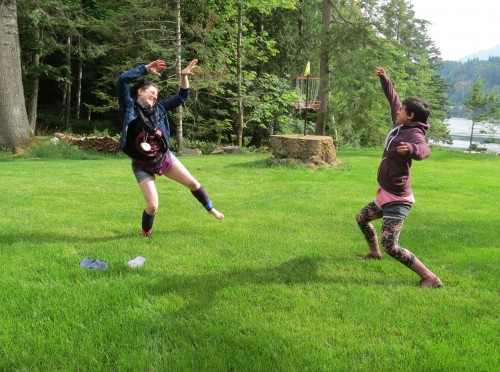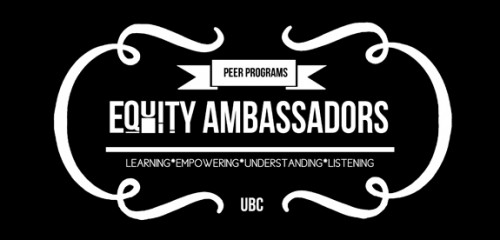The National Educational Association of Disabled Students (NEADS) is seeking applications for the next two year term of its board of directors, January 01, 2017 – December 31, 2018. All persons interested in a position on the board must be regular members in good standing, that is students with disabilities enrolled in a Canadian post-secondary institution or recent graduates with disabilities who have graduated within the last five years.
The NEADS Board of Directors is composed of eleven seats; there are ten provincial Directors (British Columbia Director, Alberta Director, Saskatchewan Director, Manitoba Director, Ontario Director, Quebec Director, Nova Scotia Director, Newfoundland and Labrador Director, Prince Edward Island Director, New Brunswick Director), one territorial Director. Candidates for the positions of provincial/territorial Directors must be students or recent graduates with disabilities, residing in and/or attending a post-secondary institution in the geographic location they seek to represent.
NEADS Board members will be expected to attend a minimum of twelve (12) monthly Board teleconferences, as well as one to two in-person Board meetings per year, funding permitting.
Board members are also expected to participate in and chair NEADS standing and project committees, and take part in Committee teleconferences.
Provincial/territorial Board members also represent their Province/Territory on the Board, serve to bring the work of NEADS to their jurisdiction, as well as to bring local issues to the national table. Board members may participate in local, regional and provincial committees and activities, within the framework provided by NEADS mandate and mission.
No prior participation in the disability or student movements is required to join the NEADS Board. Members who have strong skill sets in governance, fundraising, finance, social media and membership/partnership outreach are especially welcome. Any interested and enthusiastic NEADS member with relevant skill sets and a strong work ethic is encouraged to seek election. If you would like to become a member of the NEADS Board, please complete and sign the Nomination Form as specified online and submit it by NO LATER THAN November 21, 2016.
http://www.neads.ca/en/about/events/conference2012/nomination.php
If you have any questions, please contact: Frank Smith, National Coordinator: frank.smith@neads.ca
Time Commitment:
Board members will be expected to attend a minimum of 12 teleconferences per year, each lasting up to 2 hours, as well as 1-2 in-person Board retreats per year, dependent upon funding, that typically run Friday-Sunday. Board members are also expected to serve on at least one committee, and attend regular committee meetings by teleconference as required. Correspondence of the Board is primarily by email and telephone; members are also expected to keep up-to-date with and respond to, as necessary, all correspondence.
Note: Prospective Board members may come from a variety of backgrounds: for example community service, student leadership, provincial and regional committees, etc.; or may come from none of these backgrounds. Although specific skill sets are not required, prior experience in Board governance will be a strong asset. Interest in, and experience with, establishing regional and national projects, programs; grant funding and financial management would also be an asset. A strong commitment to participate and engage with the volume of Board business is a must. All interested members are encouraged to apply; you must have a willingness to learn and apply that learning while on the Board. NEADS Board of Directors application form:
PLEASE COMPLETE ALL QUESTIONS IN THIS APPLICATION (email it in a Word attachment to frank.smith@neads.ca)
Section A:
Candidate Information (Note that your contact information will NOT be disclosed to the NEADS membership in the Candidate Information presented for the elections)
Name:
Primary Mailing Address:
City: Province: Postal Code:
Telephone: ( ) Email: Name of your School: Year of Graduation: _____________________________________
Degree Type:
o Arts & Science Bachelor’s Degree o Master’s Degree
o Doctorate Degree
o Professional Degree (e.g., medicine,
engineering, law, social work, pharmacy, nursing, etc.) o Certificate
o Diploma
Section B:
Referees – Two referees are required, who can speak to your skill sets, previous volunteer record and achievements.
Referee #1
Name: Primary Mailing Address: City: Province: Postal Code:
Referee #2 Name: Primary Mailing Address: City: Province: Postal Code:
Section C:
Previous Volunteer/Leadership Experience and Personal Statements
Please tell us about your previous volunteer, extra-curricular and leadership experiences, and how they have prepared you for serving on the NEADS Board? (250 words or less) Based on what you know of NEADS, why do you want to join the Board of Directors? (250 words or less) How do you plan to further NEADS’ mandate and mission (as outlined in the organizational value proposition statements) in your province, region or school? (250 words or less) What specific area of the Association’s work do you believe that you can most influence? Why?
http://www.neads.ca/en/about/media/index.php?id=403
L’Association nationale des étudiant(e)s handicapé(e)s au niveau postsecondaire (NEADS) lance un appel de candidatures pour son Conseil d’administration, qui prendra fin le 21 novembre 2016
Toutes les personnes qui aimeraient occuper un poste au sein du Conseil doivent être des membres réguliers en règle, c’est-à-dire des étudiants ayant une déficience qui sont inscrits dans un établissement d’enseignement postsecondaire au Canada ou des diplômés handicapés récents qui ont obtenu leur grade au cours des cinq dernières années.
Le Conseil d’administration de NEADS est composé de 11 membres, soit 10 administrateurs provinciaux (un de la Colombie-Britannique, un de l’Alberta, un de la Saskatchewan, un du Manitoba, un de l’Ontario, un du Québec, un de la Nouvelle-Écosse, un de Terre-Neuve-et-Labrador, un de l’Île-du-Prince-Édouard et un du
Nouveau-Brunswick) et un des territoires. Les candidats doivent être des étudiants ou des diplômés récents handicapés qui habitent dans la région géographique qu’ils veulent représenter ou qui fréquentent un établissement d’enseignement postsecondaire dans cette région.
On s’attend à ce que les membres du Conseil d’administration de NEADS assistent à au moins douze (12) téléconférences mensuelles du Conseil ainsi qu’à une ou deux réunions en personne du Conseil par année. Les membres du Conseil doivent aussi faire partie de comités permanents et de projets de NEADS et en présider, et participer aux téléconférences de comités. Les administrateurs du Conseil représentent leur province ou les territoires au sein du Conseil et ont pour fonction de faire connaître le travail de NEADS dans leurs régions respectives et d’informer le Conseil national de l’association des problèmes locaux. Les membres du Conseil sont libres de participer aux activités et comités locaux, régionaux et provinciaux, dans le cadre établi par le mandat et la mission de NEADS. Il n’est pas nécessaire d’avoir participé à des mouvements de personnes handicapées ou d’étudiants pour siéger au Conseil de NEADS. Nous réservons un accueil tout spécial aux candidats qui ont de grandes habiletés en gouvernance, en collecte de fonds, en financement, en médias sociaux et en communication avec les membres et les partenaires. Nous invitons tous les membres de NEADS qui manifestent de l’enthousiasme et de l’intérêt pour le travail de NEADS et qui ont des compétences pertinentes et une solide éthique de travail à présenter leur candidature.
Pour devenir membre du Conseil d’administration de NEADS, veuillez remplir et signer le formulaire de mise en candidature en suivant les instructions en ligne et le soumettre AU PLUS TARD le 21 novembre à http://www.neads.ca/fr/about/events/conference2012/nomination.php?id=
Si vous avez des questions, veuillez communiquer avec Frank Smith, coordonnateur de NEADS, à frank.smith@neads.ca Investissement de temps : On s’attend à ce que les membres du Conseil assistent à au moins 12 téléconférences par année, pouvant durer jusqu’à deux heures chacune, ainsi qu’à une ou deux retraites en personne du Conseil par année, si des fonds sont disponibles à cette fin, qui se déroulent habituellement du vendredi au dimanche. On s’attend aussi à ce que les membres du Conseil fassent partie d’au moins un comité et qu’ils assistent aux réunions régulières du ou des comités, au besoin, par téléconférence. Le Conseil communique principalement par courriel et téléphone, et on s’attend aussi à ce que les membres se tiennent au courant de la correspondance du Conseil et y répondent lorsque cela est nécessaire. Note : Les membres potentiels du Conseil peuvent avoir de l’expérience dans divers domaines, comme le service communautaire, le leadership étudiant, les comités régionaux ou provinciaux, etc., ou n’avoir de l’expérience dans aucun de ces domaines. Bien qu’un ensemble particulier de compétences ne soit pas exigé, une expérience antérieure en gouvernance au sein d’un conseil d’administration est un atout majeur. Un intérêt pour l’établissement de projets ou de programmes régionaux ou nationaux, le financement sous forme de subventions et la gestion financière, et de l’expérience dans ces domaines seraient aussi un atout. Un engagement solide à l’égard de la participation à toutes les activités du Conseil est essentiel. Nous encourageons tous les membres que ce travail intéresse à présenter leur candidature. Vous devez être disposés à apprendre et à mettre ce que vous aurez appris en application pendant que vous ferez partie du Conseil.
Formulaire de mise en candidature – Conseil d’administration de NEADS
VEUILLEZ RÉPONDRE À TOUTES LES QUESTIONS DANS CE FORMULAIRE (envoyez-le par courriel sous forme de pièce jointe en Word à frank.smith@neads.ca)
Section A : Renseignements sur le candidat (Veuillez noter que vos coordonnées ne seront PAS divulguées aux membres de NEADS dans le court texte de présentation des candidats aux élections.)
Nom : Adresse postale principale : Ville :
Province : Code postal : Téléphone : ( ) Courriel :
Nom de votre établissement d’enseignement :
Année d’obtention de votre grade ou diplôme :
_____________________________________
Type de grade : Baccalauréat en arts ou en sciences Maîtrise Doctorat Diplôme professionnel (p. ex., en médecine, en génie, en droit, en travail social, en pharmacie, en sciences infirmières, etc.) Certificat Diplôme
Section B : Présentateurs – Nous devons obtenir les coordonnées de deux personnes qui peuvent nous renseigner sur vos compétences, vos antécédents en tant que bénévole et vos réalisations.
Présentateur no 1 Nom : Principale adresse postale : Ville : Province : Code postal :
Présentateur no 2 Nom : Principale adresse postale : Ville : Province : Code postal :
Section C : Expérience antérieure en bénévolat ou en leadership, et déclarations personnelles
Veuillez nous parler de votre expérience antérieure dans les domaines du bénévolat, des activités parascolaires et du leadership, et de la façon dont elle vous a préparé à servir au sein du Conseil d’administration de NEADS. (250 mots ou moins)
En vous fondant sur ce que vous savez de NEADS, dites-nous pourquoi vous voulez faire partie de son Conseil d’administration. (250 mots ou moins)
Comment avez-vous l’intention de contribuer à la réalisation du mandat et de la mission de NEADS (tels que décrits dans ses énoncés sur sa proposition de valeur) dans votre province, région or établissement d’enseignement? (250 mots ou moins) Sur quel domaine particulier du travail de l’Association croyez-vous pouvoir influer le plus? Pourquoi?
Frank Smith, National Coordinator
National Educational Association of Disabled Students (NEADS) Rm. 514 Unicentre, Carleton University Ottawa, Ontario, K1S 5B6 tel. (613) 380-8065 ext. 201 www.neads.ca <http://www.canadahelps.org/dn/344>
“Supporting access to post-secondary education and employment for students with disabilities”



